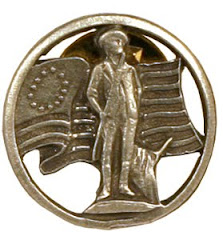When I go out shopping for something that involves high pressure salesmen, I utilize a trick that keeps them guessing and gets them off my back. Since I've been doing this kind of shopping alone for a while and since prior to that I was involved with someone who bought whatever whenever simply because she needed it, I knew I needed to adopt a trick that would protect my financial interest. I tell them that before I notify them of my decision I require and invite the input of my business partner. Little known to them, my business partner is my beagle.
When more than one person shares a decision, sometimes sellers disprove. I know when I take surveys, I used to get disqualified if they were things I passed on to other people, but now that I do what I want, I always get through that selection criterion. However, sellers don't want to run the risk of a return, so they often don't pressure me once they realize I lack final say on the matter.
If you really do have a person you can use, it works fine as well. My father currently seeks a new personal watercraft (PWC) to replace his 2-stroke seadoos, and so I volunteered to go to the dealership on a recon assignment. Since I am not actually in the market, there's really nothing they can say to me to convince me to buy something on their showroom floor, and so I'm not going to impulse buy a PWC that isn't what I want. I don't want one at all. So, I can ask all the questions, confer with my business partner (my father) if need be, and all without any pressure. Those poor salesmen have no idea ;).
My business partner has never given me bad advice. Now I know another reason why dogs are man's best friend.





Last night, I talked with my dad about the current mortgage crisis and how many people owe more on their homes than they could sell them for. He pointed out that almost everyone is upside down in their car, so this should come as no surprise for folks. However, this morning I read an article about the value of small cars, where the author predicated his point of view on the Edmunds/Bluebook valuation of his car. Cars are not assets; they are tools. I posted the following in rebuttal:
Bluebook value is only one way to value a car, and for my own part the least useful.
Seeing as how I never plan on trading in a car since I usually drive them into the ground, my 1995 Saturn SL1 is fully depreciated to where it’s of negligible monetary value as a resale or tradein. However, compared to other cars, it has great value to me.
I’ve owned the car outright for years, meaning that I do not make regular obligatory payments every month. While it may cost me $200/month here and there in repairs, every month I don’t expend money in repairs is money in my pocket. Even with a new(er) car, periodic repairs and maintenance are often not factored in to cost of ownership or relative residual value compared to new.
My car nets me a whopping 40mpg fuel economy. In order to match that, I’d have to spend $20K on a new car to replace it. To beat that economy, I’d have to spend thousands more.
As my Saturn is fully depreciated, I pay the absolute minimum registration ($40/year in NV) and my insurance costs are also low, since even if I did wreck the thing it’s not worth very much. I have full coverage because it only costs me $5/month more and replacing the windshield (which I’ve done three times) costs $400-500 (very poor design).
I do my own car maintenance, and given that there are 20 Saturns at PickNPull, I have plenty to choose from when I need replacement parts. Plus, the modular nature of this particular model means replacement parts should be available until I retire from the military.
Finally, but not least, my car is ugly. You may not see that as an asset, but I do. Nobody wants to ding or dent it, and it has enough of those already that I don’t stress out if someone scratches it like I did with my Dodge Ram (sold it years ago). I am also proud of my passive anti-theft device: manual transmission, AMFM Stereo Cassette, manual windows, doors, etc., and peeling paint. The car is simple to repair, easy to operate and cheap to own, and I don’t feel bad about the environment either with 40MPG, although I think that argument relies mostly on conjecture than anything else.
Almost everyone is bottom up in their car. Remember that as you hear about people who are bottom up in their homes. The best you can do, unless your car is a 1942 Rolls Royce Phantom II or similar collectible, is break even.